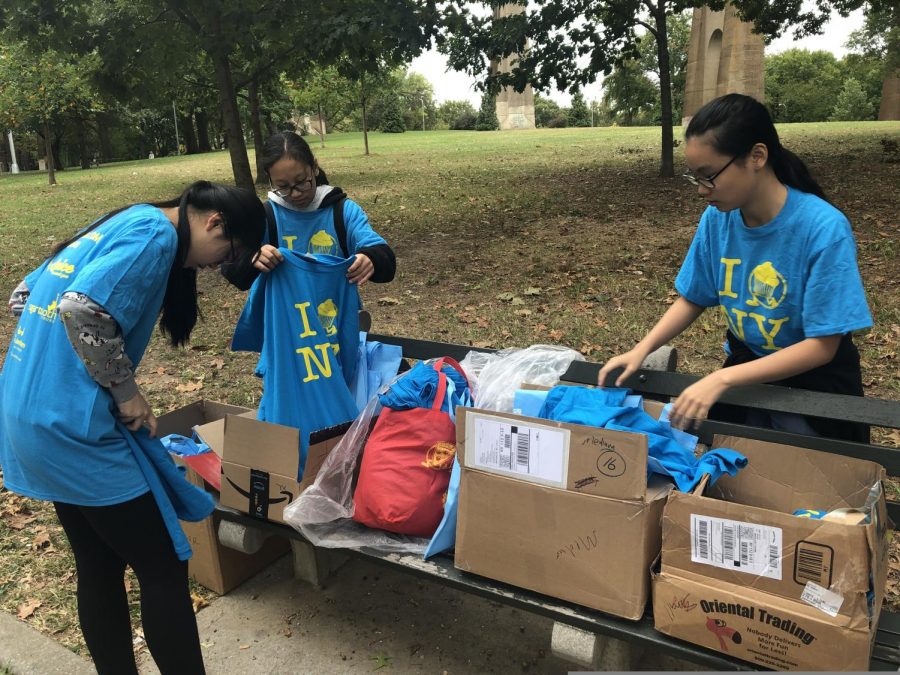Nonprofits Helping During the Coronavirus Pandemic
Bronx Science students in Key Club are pictured helping out at a community event earlier in the school year before the Coronavirus pandemic closed in-person schooling. Members of the Key Club practice the ethos of giving back to their community, as many organizations are now doing during the Coronavirus pandemic.
With the world upended by COVID-19, the regularities that we are used to following have been completely uprooted. We have watched the Coronavirus pandemic affect every aspect of our daily lives, with social distancing rules, mask wearing in public, and regulations barring groups from meeting. Businesses have been impacted greatly by these rules as stores and restaurants are now empty from the lack of customers or closed by local government mandate. This has had a ripple effect on industries everywhere. Some farmers are unable to sell their crops, and schools, restaurants, and hotels have all been vacant.
While there is an overall lack of consumer presence, there has been a surge of people buying groceries and pharmaceuticals in bulk, especially at the start of quarantine in March 2020. Abruptly faced with quarantine, people have crossed the line from preparing for this disaster to frantically buying goods. The fear of missing out has urged customers to stock up so they are not left empty handed in the future. As a result, there has been a severe shortage of basic items, like toilet paper or everyday groceries, causing people to buy even more. As of June 2020, most of these shortages have been fixed, but they were acute for much of March and April 2020. This cycle has had a detrimental effect on the people who are at a greater risk of contracting COVID-19. The elderly and those with a previous history of respiratory problems no longer have the ability to go out to purchase items as they once did, and even if they could, nothing remains for them.
The city does offer assistance to at-risk families through the NYC Food Delivery Assistance program. However, in this time of crisis, several organizations and good samaritans have taken it upon themselves to help others. Through the use of social media, people have advertised discounts and funding campaigns for food for the elderly.
During the month of Ramadan, masjids are offering their services to families as well. Food packages consisting of traditional foods such as rice, daal, dates, and rose syrup are delivered to those who seek it. In traditional Islamic fashion, these packages are given at no cost. When asked why he risks his health delivering these food packages without pay, the delivery man for the masjids told me, “Because I have the ability to go outside, I want to help those who can’t. It is important to keep our fellow brothers and sisters in mind, and to always help if we can.”
There is no incentive or gain for this. During times of trouble, people are doing whatever is in their power to help others; compassion is still here. With constant reminders of the negatives, it is helpful to take a step back and evaluate the positives. With daily reporting on new casualties, it is easy to feel hopeless. However, we now see people supporting their neighbors and strangers like never before. These inspiring actions instill a sense of hope that no matter what happens during the course of the Coronavirus pandemic, we will eventually overcome it together.
“Because I have the ability to go outside, I want to help those who can’t. It is important to keep our fellow brothers and sisters in mind, and to always help if we can.”
Sazida Marzia is the Chief Graphic Design and Layout Editor for ‘The Science Survey’. She loves photography and being able to show the unseen side...
Pinkey Lam is the Managing Editor for ‘The Science Survey’ and her job is to ensure that deadlines are met so that the newspaper is ready for print...

